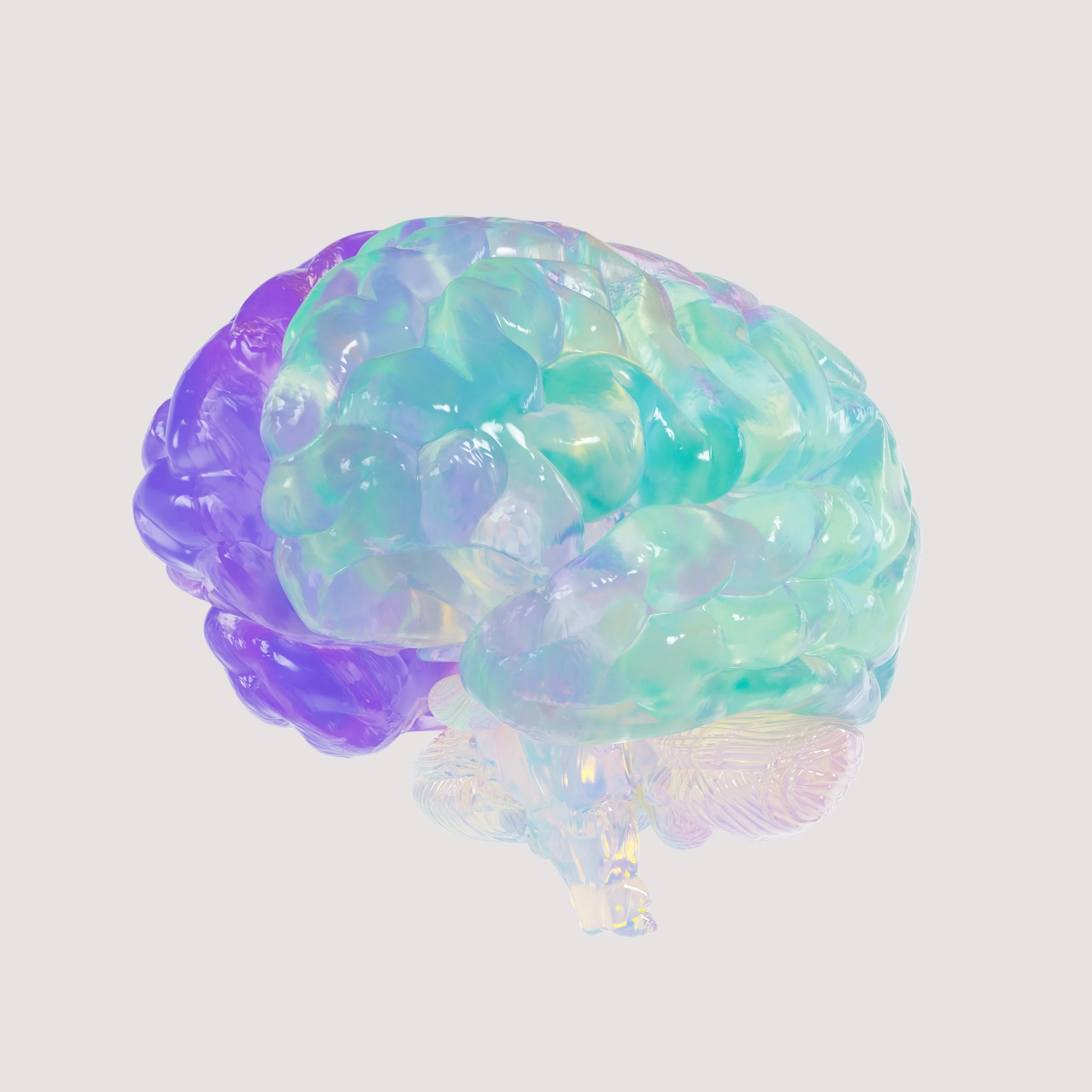
Mindful Relfections:
Insights from Emma T psychology
Welcome to Mindful Reflections, this is a space created by Emma Tattersall to share helpful information and tools to support thoughtful exploration, self-understanding, and growth.
Here, you’ll find relatable insights, practical tips, and reflective guides informed by current evidence-based research. Each piece is written with a trauma-informed and neurodivergent-affirming lens, offering a gentle path into topics like emotional regulation, relationships, neurodivergence, resilience, and everyday wellbeing. Whether you’re beginning your journey or want to gain greater depth in your understand about mental health, these resources are here to help you at your own pace.
Time Blindness: Understanding How Time Can Slip, Stretch, or Disappear
Time blindness is the difficulty of sensing or managing time, where hours vanish, tasks stretch, or appointments arrive too soon. Common among neurodivergent people or those under stress, it stems from differences in attention, emotion, and executive function. Rather than laziness, it reflects how our brains perceive time. External cues, like light, music, or visual timers, help make time visible, while transition buffers and tools like “Now vs. Next” boards support smoother task shifts. By tuning awareness and externalizing time, we can work with time’s rhythm instead of fighting it.
Finding Clarity in Conversations: Seeing What Is Underneath The Conflict
Conversations can tangle, especially if we have a history that includes challenges with trauma or neurodivergence. CLARITY offers a framework to support connection: Context, Literal language, Assume intent/complexity, Reflect, Invitations, Time, Yes/No choices. It helps us notice what’s beneath words (needs and feelings) to try small, paced adjustments at home, work, friendships, and parenting.
How to Plan Your Healing When Sessions Have Limits
Healing doesn’t follow a set number of sessions. Much of it happens between appointments through reflection, practice, and real-life change. Funding limits are administrative, not a measure of your need or internal worth. Lasting growth comes from pacing support, clarifying your priorities, and planning your personal therapy journey with intention, flexibility, and compassion.
Finding Your Feet: Grounding in Psychology and Everyday Life
When life feels fast and you’re anxious, numb or zoned out, grounding helps you come back to the present. It’s a brief, chosen pause. Using your senses, movement, or orienting facts, it can help you steady your nervous system, reduce panic and dissociation, and restore choice. It isn’t a cure or one-size-fits-all; adapt it to your needs, practise when calm, and seek support if distress persists.
the Hidden Risks of Artificial Intelligence (AI) as Emotional Support
Many of us turn to AI chatbots for emotional support due to their instant, non-judgmental replies. While helpful for journaling or learning coping skills, AI can’t replace therapy or social supports. AI may create a response that sounds empathic yet provides unsafe or inaccurate advice, especially during a crisis. Real healing requires human connection, accountability, and professional care.
From Appearance to Ability
Focusing on what your body can do, rather than how it looks, supports genuine self-worth, resilience, and wellbeing. Shifting from external validation to internal motivation builds body trust and self-compassion, helping you pursue sustainable health through values-based goals, nourishment over food rules, and discovering what feels good for you.
Depression Through a CBT Lens: Making Sense of the Fog
Depression can feel like being stuck in a draining loop of low mood, fatigue, and disconnection. Cognitive Behavioural Therapy (CBT) helps map this cycle between thoughts, feelings, and actions. By recognising the cycle we can take small, compassionate steps to restore balance, connection, and hope through as a part of evidence-based, trauma-informed care and build a way back to ourselves.
How Polyvagal Theory Explains the Brain’s Stress Response
When overwhelm hits, it’s not weakness, it’s our nervous system shifting into survival mode. Polyvagal Theory explains why we can’t think, talk, or “just relax” when emotional “big dogs” appear and our body shifts into fight, flight or freeze. Calm comes from the body first: slower breathing, gentle movement, tiny glimmers of safety, and steady connection can help us return to balance.
New Years: Why Tiny Steps Work Better than Big Resolutions
Each New Year often brings the urge to make big, sweeping changes, and we want to reinvent ourselves overnight. However, lasting change doesn’t come from drastic resolutions, it grows through small, meaningful steps grounded in self-compassion and aligned with personal values. When we focus on gentle, achievable actions, we build confidence, emotional safety, and genuine growth that can endure.
Managing Loneliness During The Holidays: It’s Okay Not to Feel Festive
Christmas in Australia is often portrayed as joyful and connected, yet for many, it brings loneliness, grief, or overwhelm. Social pressures, sensory overload, and painful memories can heighten distress. If this is your experience, you’re not alone, these feelings are human. This season, honour your emotions, redefine traditions, and nurture gentle connections that bring comfort and authenticity.
Managing Distress During Holiday Closure
The holidays bring warmth and connection, but also change and unpredictability. When routines pause, support systems quiet, we risk experiencing a rise in our emotions. Having a plan helps keep us steady, like a map for our nervous system, it gives us direction. Practising distress tolerance and grounding tools between sessions can help to build calm, resilience, and emotional balance.
From Festive Joy to Emotional Fallout
The holidays can heighten relationship strain as financial stress, family demands, sensory overload, and unmet expectations build up. Small tensions may grow under pressure, leaving couples distant or irritable. Shared planning, open reflection, and small repair gestures help reconnect partners. Remember, stress and disconnection is human, not failure. If safety is a concern, seek confidential support (1800 RESPECT).
DARVO and FOG: How to Recognise Manipulative Communication Patterns
Have you ever left a conversation feeling confused, guilty, or doubting your own reality? You may have encountered manipulative patterns like gaslighting, DARVO, or FOG. These tactics are used to distort truth, shift blame, and erode self-trust. Recognising these behaviours helps you set boundaries, rebuild your confidence, and restore emotional clarity and safety in your relationships.
Loneliness and Connection at Christmas: Using the Circle of Closeness
Christmas can magnify both joy and loneliness. Many Australians feel the gap between connection we crave and what’s real. The Circle of Closeness helps us reflect on safety, boundaries, and where to invest our emotional energy. This season, focus on gentle connection, prioritising calm, authenticity, and self-care over obligation.
Personal Therapy: Creating An Approach That Fits You
Personalised therapy recognises that one size never fits all. Every person has a their own unique experiences, identities, and needs, so therapy must adapt. It needs to respect your pace, culture, and goals to be effective. Using evidence-based approaches like strategies should be collaborative, flexible, and trauma-informed designed to fit you, not expecting you to bend the other way around.
The Psychology of Giving: Finding Meaning Beyond Gifts
Generosity supports wellbeing when it’s chosen freely and aligns with our values. Research shows mindful giving and gratitude can strengthen connection and reduce stress, but over-giving from guilt or pressure can cause fatigue. True generosity includes boundaries, self-care, and respect for cultural and personal differences.
Building, Balancing, and Ending Relationships with Care
Relationships can feel like a dance, sometimes flowing, sometimes out of step. Through Dialectical Behaviour Therapy (DBT), we can learn the art of balance: communicating our needs clearly, setting respectful boundaries, and nurturing genuine connection. With mindfulness, validation, and compassion, we can stay kind without losing ourselves, finding rhythm in both closeness and space.
What Is the Cost? Aligning Your Values and Decisions
Sometimes we “win”… but at what cost? Every choice we make spends our time, energy, money or spoons. Before fighting a battle, pause and ask yourself "What value am I protecting, and what is this costing me?" By making a choice that is consciously line with our values (fairness, peace, connection, rest) can helps us spend our limited resources wisely and improve our wellbeing.
Schemas - Understanding Emotional Patterns
Schemas are deep patterns of thinking, feeling, and behaving that shape how we see ourselves and relate to others. They form in our past, based on how our emotional needs were met, or unmet. When needs are met, we build healthy schemas; trust, confidence, self-worth. When unmet, maladaptive schemas form, but with awareness and support, these patterns can be understood and changed.
Disclaimer
The information on this website is provided for general educational purposes only. It is not intended as, and should not be taken to be, personalised psychological advice, diagnosis, or treatment.
If you are experiencing psychological distress or mental health concerns, please seek professional support from a registered psychologist, your general practitioner, or another qualified health professional.
If you are in crisis or require immediate assistance, please call 000 in an emergency or contact Lifeline on 13 11 14.




















